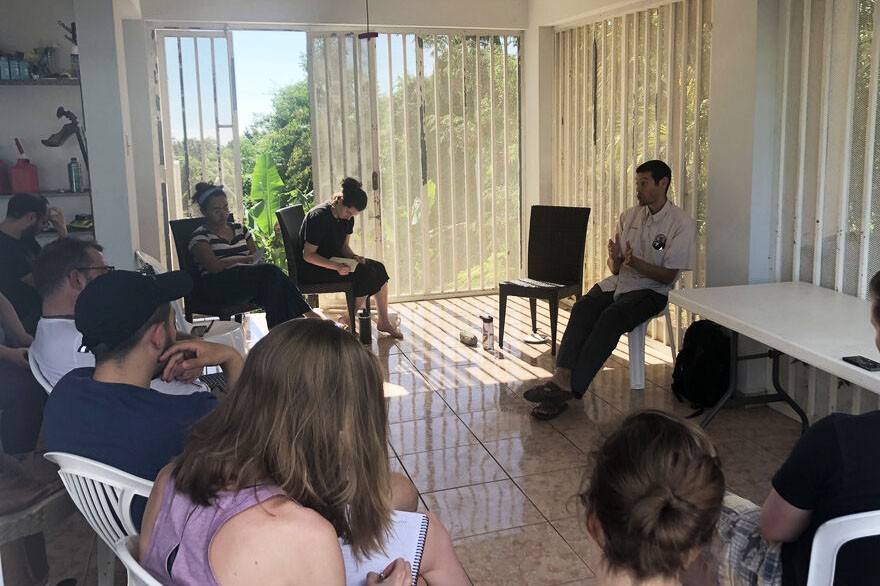Students from across the University were studying resiliency efforts in Puerto Rico when disaster hit the island earlier this month.
The University’s Global Convergence Lab is a collaborative effort meant to explore energy alternatives in the face of natural disaster. The class, which focuses on community resiliency and infrastructure, returned to the island on Jan. 3 for its second year, just days before record earthquakes hit.
Masters student Shannon Evans Engstrom said that the class is looking at how Puerto Rico is working to recover from the earthquakes while continuing to face the effects of Hurricane Maria in 2017.
“There’s a lot of smaller communities and municipalities that are thinking about, after a natural event, where people can go to charge their phones, where can they refrigerate things like insulin,” Engstrom said.
Last January, the Convergence Lab focused on power and energy operations after Hurricane Maria.
“Last year the power was still not on,” Engstrom said. “This year, they have power but then there were earthquakes. It’s just a different class every year due to the circumstances.”
The class also worked alongside members from Resilience through Innovation in Sustainable Energy. RISE is an initiative by the Instituto Nacional de Energía y Sostenibilidad Isleña working to examine ways in which universities can better interact with communities affected by disaster.
Javier Nieves Torres, a representative from INESI, said the response after Hurricane Maria was sometimes disorganized, and members of university outreach efforts often lacked cultural sensitivity.
“We found that after Hurricane Maria, a lot of universities in the U.S. would come down into Puerto Rico, and we found that they normally didn’t know where to go,” Torres said. “[T]here wasn’t really a lot of coordination or communication.”
While university aid has sometimes fallen short, frustrations have also arisen from local and federal government mismanagement of recovery resources. Protests broke out across Puerto Rico in response to the discovery of unused and expired aid from Hurricane Maria.
“In Puerto Rico … they deal with [territory] status and what that implies,” Engstrom said. “…They are trying to figure out how they can make sure that they can rely on themselves because they can’t rely on the government.”
Recent University graduate Iván López-Justiniano’s family still lives in Puerto Rico. He talked about the uncertainty resulting from the continued earthquakes and aid issues.
“I think everyone has been affected in some sort of way,” he said. “My family and their houses are fine … They decided to sleep in tents because that felt safer. A lot of the earthquakes are happening at night … which means that everyone is in their houses.”
López-Justiniano has been in Minnesota since just before Hurricane Maria struck the island. He said distance from his family has added to the stress and uncertainty.
“Being a Puerto Rican diaspora right now, there’s been a lot of issues,” he said. “Your family is suffering and there’s not much you can do … It’s been mostly a lot of psychological trauma for my family and almost everyone who lives in Puerto Rico.”
López-Justiniano said that those wishing to help should donate to his gofundme, “Relief for Puerto Rico’s earthquake victims,” which he said is more directly impactful than national efforts.








